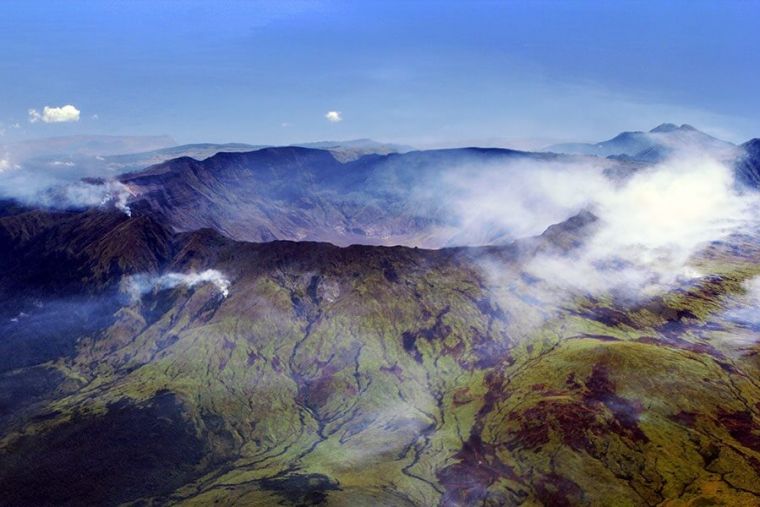Volcanic eruptions that can kill thousands, poison atmosphere feared as Earth enters 'volcano season'

Some threats to humans are very evident at present: War, extreme weather caused by El Niño and man-made climate change, and even the possibility of giant asteroids and comets hitting Earth.
Another threat to mankind, however, may be less evident but can also possibly kill thousands and poison the air that we breathe: volcanic eruptions.
After studying volcanic activity over the last three centuries, researchers from the European Science Foundation warned that the Earth is currently in "volcano season." This means that the planet will experience more volcanic eruptions in the coming years—some of which can have devastating effects on mankind.
"Although in the last few decades earthquakes have been the main cause of fatalities and damage, the main global risk is large volcanic eruptions that are less frequent but far more impactful than the largest earthquakes," the report said, as cited by WND.com.
The experts raised the possibility of a repeat of the catastrophic explosion of Tambora volcano on Sumbawa, Indonesia, in 1815, which killed at least 71,000 people at the time.
"Volcanic eruptions can have more severe impacts through atmospheric and climate effects and can lead to drastic problems in food and water security, as emphasised by the widespread famine and diseases that were rampant after the Laki 1783 and Tambora 1815 eruptions," the report read.
Given the planet's large population at present, and with almost everything linked nowadays, the devastation that a similar volcanic eruption happening in the present day will be more immense, the researchers said.
"Due to their far-reaching effects on climate, food security, transportation, and supply chains, these events have the potential to trigger global disaster and catastrophe. The cost of response and the ability to respond to these events is beyond the financial and political capabilities of any individual country," the research, presented at the general assembly of the European Geosciences Union in Vienna, stated.











